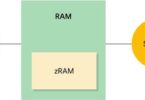DeepMind: Eye Tests – Earlier Detection/Treatment of Common Eye Disease
In order to train an artificial intelligence – AI system from Google, around one million anonymised eye scans from Moorfields Eye Hospital would be utilised. MedConfidential Twitter account had tweeted that `maybe they have learnt the lessons of their Royal Free fiasco. Not that they have shared what they learnt from that ….’ `Our research with DeepMind has the prospective to revolutionise the way professionals carry out eye tests and could lead to earlier detection and treatment of common eye diseases like growth-related macular degeneration, states Prof Sir Peng Tee Khaw, director of the National Institute for Health Research Biomedical Research Centre in Ophthalmology at Moorfields Eye Hospital. The machine learning algorithms would be searching the images for indications of diseases like macular degeneration and diabetes-related sight loss. It is said that Moorfields will be teaming with Google’s AI division DeepMind at the time of the scheme. Earlier DeepMind had to put up with criticism over a little known data sharing agreement with three hospitals in London. It was revealed by the online source in May, of an agreement to share the data of the patients from the Royal Free, Barnet and Chase Farm hospitals over the last five years and would continue till 2017.
Apps `Streams’ – Notify Doctors – Risk of Acute Kidney Injury
Google, in that case stated that it was analysing kidney data with the expectation of developing an app for the medical staff. The app named Streams would be notifying doctors if someone tends to be at risk of acute kidney injury – AKI.
With the announcement of the latest venture with Moorfields, Google has mentioned the support of the Royal National Institute of Blind people – RNIB together with the sight charities like the Macular Society. Co-ordinator at patient data campaign group MedConfidential, Sam Smith informed BBC that `how it plays out over time remains to be seen.
But you do have organisation involved that are not principally concerned with DeepMind, they care about blindness in the case of RNIB and long term medical research regarding the National Institute for Health Research’. MedConfidential Twitter account tweeted `maybe they have learnt the lessons of their Royal Free fiasco, not that they have shared what they learnt from that …’
Patients Can Opt Out of Data-Sharing System of DeepMind
Current rules state that as long as the data tends to be anonymised, it could be shared for properly approved projects. A Q&A had been published by Moorfields on the DeepMind collaboration that adds `patients can opt out of any data-sharing system by emailing the Trusts’ data protection officer’.
All through the DeepMind project, the database is said to be the property of Moorfields but `artificial intelligence software invented by DeepMind during the research project is owned by DeepMind with a licence approved to use the data only to the level it is integrated in any software developed from the research. Google has stated that it estimated up to 98% of sight loss due to diabetes could be prevented with early treatment.
Massachusetts General Hospital had recently announced collaboration with semiconductor firm Nvidia to cultivate new artificial intelligence techniques to enhance the diagnosis of diseases. Gareth Corfield, a tech journalist had tweeted that he` hit the roof’ after reading the news and had written a letter to Moorfields quoting the Data Protection Act. He wrote that it was a serious dereliction of duties as a data controller.







